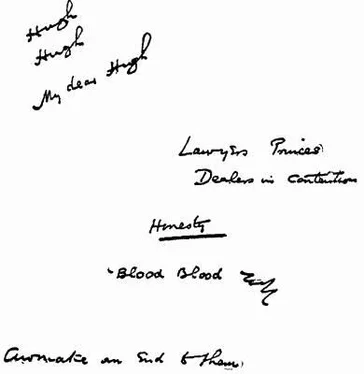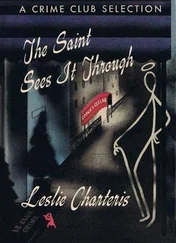Herbert Wells - Mr. Britling Sees It Through
Здесь есть возможность читать онлайн «Herbert Wells - Mr. Britling Sees It Through» весь текст электронной книги совершенно бесплатно (целиком полную версию без сокращений). В некоторых случаях можно слушать аудио, скачать через торрент в формате fb2 и присутствует краткое содержание. Жанр: Классическая проза, на английском языке. Описание произведения, (предисловие) а так же отзывы посетителей доступны на портале библиотеки ЛибКат.
- Название:Mr. Britling Sees It Through
- Автор:
- Жанр:
- Год:неизвестен
- ISBN:нет данных
- Рейтинг книги:4 / 5. Голосов: 1
-
Избранное:Добавить в избранное
- Отзывы:
-
Ваша оценка:
- 80
- 1
- 2
- 3
- 4
- 5
Mr. Britling Sees It Through: краткое содержание, описание и аннотация
Предлагаем к чтению аннотацию, описание, краткое содержание или предисловие (зависит от того, что написал сам автор книги «Mr. Britling Sees It Through»). Если вы не нашли необходимую информацию о книге — напишите в комментариях, мы постараемся отыскать её.
Mr. Britling Sees It Through — читать онлайн бесплатно полную книгу (весь текст) целиком
Ниже представлен текст книги, разбитый по страницам. Система сохранения места последней прочитанной страницы, позволяет с удобством читать онлайн бесплатно книгу «Mr. Britling Sees It Through», без необходимости каждый раз заново искать на чём Вы остановились. Поставьте закладку, и сможете в любой момент перейти на страницу, на которой закончили чтение.
Интервал:
Закладка:
"I've not heard from my boy for more than three weeks," said Mr. Britling in the place of any salutation. "This morning makes three-and-twenty days without a letter."
It seemed to Mr. Direck that Mr. Britling had suddenly grown ten years older. His face was more deeply lined; the colour and texture of his complexion had gone grey. He moved restlessly and badly; his nerves were manifestly unstrung.
"It's intolerable that one should be subjected to this ghastly suspense. The boy isn't three hundred miles away."
Mr. Direck made obvious inquiries.
"Always before he's written—generally once a fortnight."
They talked of Hugh for a time, but Mr. Britling was fitful and irritable and quite prepared to hold Mr. Direck accountable for the laxity of the War Office, the treachery of Bulgaria, the ambiguity of Roumania or any other barb that chanced to be sticking into his sensibilities. They lunched precariously. Then they went into the study to smoke.
There Mr. Direck was unfortunate enough to notice a copy of that innocent American publication The New Republic , lying close to two or three numbers of The Fatherland , a pro-German periodical which at that time inflicted itself upon English writers with the utmost determination. Mr. Direck remarked that The New Republic was an interesting effort on the part of " la Jeunesse Américaine ." Mr. Britling regarded the interesting effort with a jaded, unloving eye.
"You Americans," he said, "are the most extraordinary people in the world."
"Our conditions are exceptional," said Mr. Direck.
"You think they are," said Mr. Britling, and paused, and then began to deliver his soul about America in a discourse of accumulating bitterness. At first he reasoned and explained, but as he went on he lost self-control; he became dogmatic, he became denunciatory, he became abusive. He identified Mr. Direck more and more with his subject; he thrust the uncivil "You" more and more directly at him. He let his cigar go out, and flung it impatiently into the fire. As though America was responsible for its going out....
Like many Britons Mr. Britling had that touch of patriotic feeling towards America which takes the form of impatient criticism. No one in Britain ever calls an American a foreigner. To see faults in Germany or Spain is to tap boundless fountains of charity; but the faults of America rankle in an English mind almost as much as the faults of England. Mr. Britling could explain away the faults of England readily enough; our Hanoverian monarchy, our Established Church and its deadening effect on education, our imperial obligations and the strain they made upon our supplies of administrative talent were all very serviceable for that purpose. But there in America was the old race, without Crown or Church or international embarrassment, and it was still falling short of splendid. His speech to Mr. Direck had the rancour of a family quarrel. Let me only give a few sentences that were to stick in Mr. Direck's memory.
"You think you are out of it for good and all. So did we think. We were as smug as you are when France went down in '71.... Yours is only one further degree of insularity. You think this vacuous aloofness of yours is some sort of moral superiority. So did we, so did we....
"It won't last you ten years if we go down....
"Do you think that our disaster will leave the Atlantic for you? Do you fancy there is any Freedom of the Seas possible beyond such freedom as we maintain, except the freedom to attack you? For forty years the British fleet has guarded all America from European attack. Your Monroe doctrine skulks behind it now....
"I'm sick of this high thin talk of yours about the war.... You are a nation of ungenerous onlookers—watching us throttle or be throttled. You gamble on our winning. And we shall win; we shall win. And you will profit. And when we have won a victory only one shade less terrible than defeat, then you think you will come in and tinker with our peace. Bleed us a little more to please your hyphenated patriots...."
He came to his last shaft. "You talk of your New Ideals of Peace. You say that you are too proud to fight. But your business men in New York give the show away. There's a little printed card now in half the offices in New York that tells of the real pacificism of America. They're busy, you know. Trade's real good. And so as not to interrupt it they stick up this card: 'Nix on the war!' Think of it!—'Nix on the war!' Here is the whole fate of mankind at stake, and America's contribution is a little grumbling when the Germans sank the Lusitania , and no end of grumbling when we hold up a ship or two and some fool of a harbour-master makes an overcharge. Otherwise—'Nix on the war!'...
"Well, let it be Nix on the war! Don't come here and talk to me! You who were searching registers a year ago to find your Essex kin. Let it be Nix! Explanations! What do I want with explanations? And"—he mocked his guest's accent and his guest's mode of thought—"dif'cult prap'sitions."
He got up and stood irresolute. He knew he was being preposterously unfair to America, and outrageously uncivil to a trusting guest; he knew he had no business now to end the talk in this violent fashion. But it was an enormous relief. And to mend matters— No! He was glad he'd said these things....
He swung a shoulder to Mr. Direck, and walked out of the room....
Mr. Direck heard him cross the hall and slam the door of the little parlour....
Mr. Direck had been stirred deeply by the tragic indignation of this explosion, and the ring of torment in Mr. Britling's voice. He had stood up also, but he did not follow his host.
"It's his boy," said Mr. Direck at last, confidentially to the writing-desk. "How can one argue with him? It's just hell for him...."
§ 20
Mr. Direck took his leave of Mrs. Britling, and went very slowly towards the little cottage. But he did not go to the cottage. He felt he would only find another soul in torment there.
"What's the good of hanging round talking?" said Mr. Direck.
He stopped at the stile in the lane, and sat thinking deeply. "Only one thing will convince her," he said.
He held out his fingers. "First this," he whispered, "and then that. Yes."
He went on as far as the bend from which one sees the cottage, and stood for a little time regarding it.
He returned still more sorrowfully to the junction, and with every step he took it seemed to him that he would rather see Cecily angry and insulting than not see her at all.
At the post office he stopped and wrote a letter-card.
"Dear Cissie," he wrote. "I came down to-day to see you—and thought better of it. I'm going right off to find out about Teddy. Somehow I'll get that settled. I'll fly around and do that somehow if I have to go up to the German front to do it. And when I've got that settled I've got something else in my mind—well, it will wipe out all this little trouble that's got so big between us about neutrality. And I love you dearly, Cissie."
That was all the card would hold.
§ 21
And then as if it were something that every one in the Dower House had been waiting for, came the message that Hugh had been killed.
The telegram was brought up by a girl in a pinafore instead of the boy of the old dispensation, for boys now were doing the work of youths and youths the work of the men who had gone to the war.
Mr. Britling was standing at the front door; he had been surveying the late October foliage, touched by the warm light of the afternoon, when the messenger appeared. He opened the telegram, hoping as he had hoped when he opened any telegram since Hugh had gone to the front that it would not contain the exact words he read; that it would say wounded, that at the worst it would say "missing," that perhaps it might even tell of some pleasant surprise, a brief return to home such as the last letter had foreshadowed. He read the final, unqualified statement, the terse regrets. He stood quite still for a moment or so, staring at the words....
Читать дальшеИнтервал:
Закладка:
Похожие книги на «Mr. Britling Sees It Through»
Представляем Вашему вниманию похожие книги на «Mr. Britling Sees It Through» списком для выбора. Мы отобрали схожую по названию и смыслу литературу в надежде предоставить читателям больше вариантов отыскать новые, интересные, ещё непрочитанные произведения.
Обсуждение, отзывы о книге «Mr. Britling Sees It Through» и просто собственные мнения читателей. Оставьте ваши комментарии, напишите, что Вы думаете о произведении, его смысле или главных героях. Укажите что конкретно понравилось, а что нет, и почему Вы так считаете.






